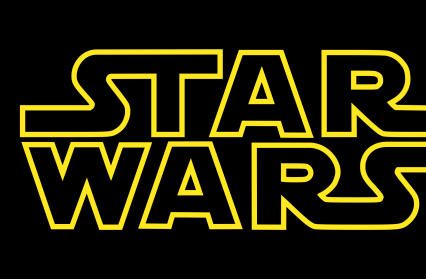Gary Raymond celebrates Star Wars: The Force Awakens, the lastest addition to everyone’s favourite intergalactic space-opera.
WARNING: Although this review attempts to contain NO spoilers, the author recognises such things mean different things to different people. And so with this in mind we recommend not reading any reviews of Star Wars: The Force Awakens, including this one, if you wish to watch the film without any knowledge of the plot. Best to just move on and read something else.
*
Some cultural phenomena are critic proof. Howard Carter helped start a rumour that anybody who came into contact with the tomb of Tutankhamun would die a horrible and cursed death, and yet grandmothers were still being summarily sold in exchange for tickets when the treasures of the Valley of the Kings came to the British Museum a few years back. Likewise, no matter how much The Phantom Menace sucked, Attack of the Clones had queues around the block. As far as ancient Egyptian curse metaphors go, Phantom brought out the dead to no avail. And as if cat’s piss was catnip, Revenge of the Sith, sometimes (wrongly) referred to as “the least shit of the prequels”, took just a little under a 60 billion dollars at the box office (figures provided by the Donald Trump Office of Made Up Statistics).
If Star Wars is the myth cycle of our age, then it’s perhaps the most popular one in human history. The prequels, the sheer existence, not just the memory, of which JJ Abrams is overtly attempting to extinguish with this first sequel, are generally derided, ridiculed, and despised. Yet they are yet to be disregarded. Up until now they have been entirely a part of the conversation. No such reluctant reverence is shown The Godfather Part III or even Indiana Jones and the Kingdom of the Crystal Skull. These films are politely forgotten, brushed over, erased from their staining role on our beloved cinematic mountain ranges. But not so the Star Wars prequels – they are hated and embraced.
So has Abrams righted those heinous wrongs? Not only has he done so, but he has done so with style, panache, and wit. If the claim of Star Wars as the myth cycle of the modern era has always seemed a little hifalutin’ for something as patently weightless as the adventures of a disparate band of space misfits, then Abrams is going a long way to giving it weight, and at the same time suggesting the next turn of that cycle is revving up. The Force Awakens is an absolute triumph, but by the closing credits it feels suspiciously like Abrams is consciously casting off not just the shackles of those prequels, but also the expectations from the originals; he is smartly casting aside baggage whilst every inch giving the fans what they want (and deserve).
We now have working alongside those iconic figures of the originals, new characters that are immediately part of the game. It is impossible not to welcome Johnny Boyega’s Finn, Adam Driver’s brilliantly flawed villain Kylo Ren, and even the BB-8 droid. But it is Daisy Ridley’s Rey who steals a show built up of stolen moments. Rey is a rare thing in mainstream cinema, a woman who is asked to fight, to fix mechanical things, to take the lead, to drive, and yet at no point is she allowed to be a tom boy, at no point is she written as a gasket of pent-up psychological trauma. She is the shining example of why The Force Awakens is such a successful movie – because it is thoughtful, constructed with humanity and intelligence by a director who knows how to construct a story on screen. And it is the first Star Wars movie to have a good script.
The Star Wars brand is a cultural force like no other. But for a while there it looked as though it would, eventually, still be nothing more than a fad, attached to the emotional lives of the generation that grew up with it as a fresh innovation in the melding of fantasy, cinema, and cinematic technology. The prequels threatened to quash any generational extension. The prequels have their young fans that were protected from the ownership psychoses of those who grew up with episodes IV to VI. But those younglings who enjoyed the prequels could find even greater (and much better) delights just by glancing either side of them at the toy shop, or by wandering in to an adjacent cinema screen. When the prequels came out, don’t forget, Harry Potter had yet to descend and deliver a fantasy world far more relatable than interplanetary tax disputes. It was only a matter of time before Star Wars faded and died. Not so now. It is once again, for generations to come, the only game in town.
The Force Awakens is a movie that smacks of transition, albeit a celebratory transition. This is now Abrams’ franchise – he is snatching the reins in every frame, and by the end of it he’s charging off into the distance with the mythology tucked under his arm. The Force is well and truly awoken, and I don’t think I’m sticking my neck out by suggesting the real heights are yet to come.
Gary Raymond is an editor and regular contributor to Wales Arts Review.



 Enjoyed this article? Support our writers directly by buying them a coffee and clicking this link.
Enjoyed this article? Support our writers directly by buying them a coffee and clicking this link.








